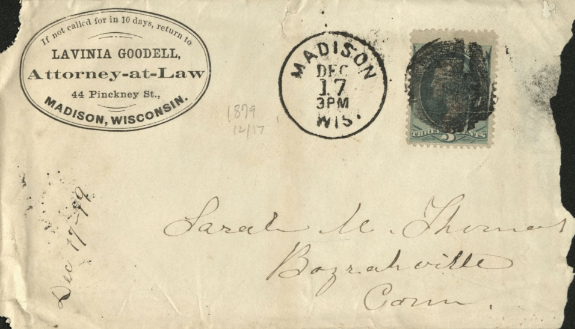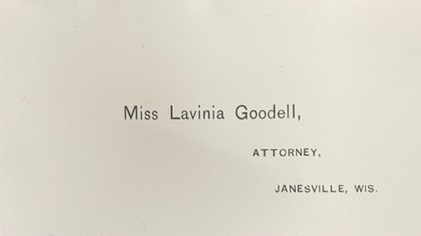“It is real fun to be a lawyer.”
Lavinia Goodell, August 21, 1874

The early days of Lavinia Goodell’s legal practice were busy ones. After being admitted to practice law on June 17, 1874, she was eager to get to work and was willing to take on any clients who wanted to hire her. Lavinia’s diary entries and letters make clear that she was throwing herself into her practice with great enthusiasm and she truly enjoyed being a lawyer.
In August 1874 she tried her first cases to the court after being retained by Jefferson County temperance women to prosecute saloon keepers dealers who violated the law by selling liquor on Sundays. She won those cases. (Read more here.) She proudly wrote to her sister, “I am not afraid of the liquor men. I only wish I had plenty of such cases and could win them all. . . . Run away from them and they will run after you, but give them chase and they will run the other way.”
Continue reading →













